Weather changes can trigger various skin conditions, including eczema. However, the effects vary from person to person. During the winters, the air’s moisture content decreases, resulting in dry skin and aggravating eczema. Similarly, during the summer, the soaring temperature stimulates the growth of rashes on the skin. Exercise sweat promotes the growth of bacteria and harmful chemicals on the skin. Patients with eczema should take necessary precautions to protect themselves from skin problems in summer. Always follow an effective treatment plan to reduce unwanted symptoms.
Eczema, popularly known as atopic dermatitis, is a skin condition characterised by red, itchy, and scaly skin. This skin condition typically occurs in childhood and continues till adulthood. In some patients, periodic eczema flares are observed that clear up over time.
Common Causes of Eczema
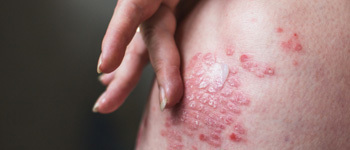
Eczema is non-contagious skin inflammation. However, the portion of the skin affected by eczema is more prone to infections like cold sores, warts, athlete’s foot, etc.
Some of the Potential Causes of Eczema
- Dysfunctioning of the immune system resulting in unwanted inflammatory response on the skin
- Genetic factors
- Substances that can trigger eczema formation
- Irritants like detergent, soap, heat, wool, excessive stress, low humidity, skin infections, excessive sweating
- Allergens like molds, pollen, dust mites, and certain food substances can also trigger eczema
Signs and Symptoms of Eczema Flare
Symptoms of eczema first appear on the face and then on the hands and feet. Older children get affected on their knees and elbow creases, wrist, neck, feet, and ankles.
Some of the common symptoms of eczema
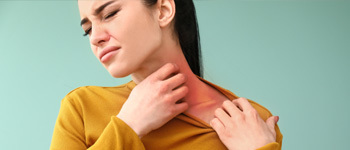
How Changes in the Weather Can Affect Our Skin
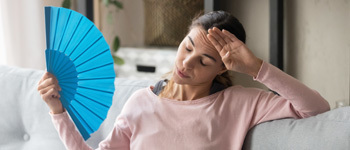
Doctors usually recommend patients stay indoors during the summers. Besides, maintaining hygiene is also essential to prevent the sudden outbreak of eczema in warm weather.
Sudden eczema flares up are very disappointing, especially when there is minimal access to a reliable doctor or clinic. Here are some preventive measures that can help avoid skin problems in summer.
-
- Itching is the primary symptom of skin problems in summer. In children, continuous itching results in aggravation of the infection.
- Excess blood starts flowing through the blood vessels in the affected area of the skin resulting in redness.
- Some patients have tiny fluid-filled blisters under the skin.
- Blisters often start weeping either by them or due to scratching.
- Small children suffering from eczema have dry, scaly skin. Dry skin is a primary reason for developing eczema.
- Some portions of the skin develop rough leathery skin due to excessive scratching.
-
-
- Always Use a Mineral-Based Sunscreen
Mineral sunscreen helps protect the skin better than chemical-based sunscreen. It is particularly suitable for eczema treatment as some chemical sunscreen can irritate sensitive skin. Moreover, mineral sunscreen offers better moisturisation as it contains minerals like titanium dioxide and zinc oxide.
-
- Change Out Of Wet Clothing As Soon As Possible
Staying dry during the summers is quite a struggle for individuals suffering from eczema. Avoid sweat on any part of the body, and change the clothes as soon as possible. Studies found that changing clothes frequently during summers is an effective way of preventing eczema from sweat.
-
- Try To Stay Cool, Drink Sufficient Water and Avoid Sweating
Avoid hot temperatures and reduce sweating as much as possible. It is best to stay in a temperature-regulated environment where the heat is not excessive. Always drink plenty of water to keep the body under average temperature. During the summers, wear loose-fitting clothes made from breathable fabrics.
-
- Use Phototherapy to Reduce Eczema
This treatment makes use of ultraviolet light without causing any damage to the skin. Exposing the inflamed skin to control ultraviolet light during the day helps reduce inflammation. Researchers have found that narrowband ultraviolet rays are highly effective in curing signs of eczema. The best part about this treatment is that it is effective all year round. Remember to undergo the therapy only as your doctor’s recommendation.
-
- Take a Shower Regularly To Keep Skin Clean
Consider taking a bath or shower every day to keep skin free from this bacteria and dust that accumulates throughout the day. It is found that children with eczema witnessed a significant drop in the symptoms from daily showering. Avoid using soaps and moisturising creams that contain chemical dyes or fragrances.
-
- Use Air Purifier to Keep the Surroundings Clean
Invest in buying an air purifier for the home to decrease pollen, allergens, and dust in the air. Air purifiers help reduce the number of pollutants in indoor air and help relieve symptoms of eczema significantly.
-
- Wear Loose Breathable Clothes
Wear breathable clothes to avoid eczema flares during the summer. Tight clothes cause rashes and increase the body temperature resulting in skin inflammation. Wear light fabrics to keep the body cool. Avoid using dark-coloured garments during the summer as it attracts more heat. Synthetic material causes skin irritation and triggers eczema flare.
There are various eczema treatments an individual can try to prevent sudden eczema flares. For patients having eczema, it is best to avoid using harsh shops, detergent and chemical-based cosmetics. Always follow a good hygiene routine to keep the skin clean and moisturised at all times. Keep away from extreme temperatures, irritating clothing and dry air. Always consult a dermatologist and take necessary medicines if the symptoms of eczema aggravate.
-


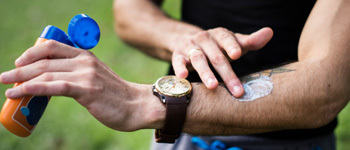 Mineral sunscreen helps protect the skin better than chemical-based sunscreen. It is particularly suitable for eczema treatment as some chemical sunscreen can irritate sensitive skin. Moreover, mineral sunscreen offers better moisturisation as it contains minerals like titanium dioxide and zinc oxide.
Mineral sunscreen helps protect the skin better than chemical-based sunscreen. It is particularly suitable for eczema treatment as some chemical sunscreen can irritate sensitive skin. Moreover, mineral sunscreen offers better moisturisation as it contains minerals like titanium dioxide and zinc oxide.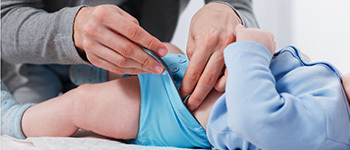 Staying dry during the summers is quite a struggle for individuals suffering from eczema. Avoid sweat on any part of the body, and change the clothes as soon as possible. Studies found that changing clothes frequently during summers is an effective way of preventing eczema from sweat.
Staying dry during the summers is quite a struggle for individuals suffering from eczema. Avoid sweat on any part of the body, and change the clothes as soon as possible. Studies found that changing clothes frequently during summers is an effective way of preventing eczema from sweat. Avoid hot temperatures and reduce sweating as much as possible. It is best to stay in a temperature-regulated environment where the heat is not excessive. Always drink plenty of water to keep the body under average temperature. During the summers, wear loose-fitting clothes made from breathable fabrics.
Avoid hot temperatures and reduce sweating as much as possible. It is best to stay in a temperature-regulated environment where the heat is not excessive. Always drink plenty of water to keep the body under average temperature. During the summers, wear loose-fitting clothes made from breathable fabrics.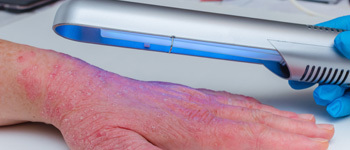 This treatment makes use of ultraviolet light without causing any damage to the skin. Exposing the inflamed skin to control ultraviolet light during the day helps reduce inflammation. Researchers have found that narrowband ultraviolet rays are highly effective in curing signs of eczema. The best part about this treatment is that it is effective all year round. Remember to undergo the therapy only as your doctor’s recommendation.
This treatment makes use of ultraviolet light without causing any damage to the skin. Exposing the inflamed skin to control ultraviolet light during the day helps reduce inflammation. Researchers have found that narrowband ultraviolet rays are highly effective in curing signs of eczema. The best part about this treatment is that it is effective all year round. Remember to undergo the therapy only as your doctor’s recommendation. Consider taking a bath or shower every day to keep skin free from this bacteria and dust that accumulates throughout the day. It is found that children with eczema witnessed a significant drop in the symptoms from daily showering. Avoid using soaps and moisturising creams that contain chemical dyes or fragrances.
Consider taking a bath or shower every day to keep skin free from this bacteria and dust that accumulates throughout the day. It is found that children with eczema witnessed a significant drop in the symptoms from daily showering. Avoid using soaps and moisturising creams that contain chemical dyes or fragrances.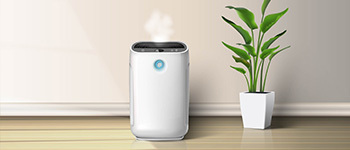 Invest in buying an air purifier for the home to decrease pollen, allergens, and dust in the air. Air purifiers help reduce the number of pollutants in indoor air and help relieve symptoms of eczema significantly.
Invest in buying an air purifier for the home to decrease pollen, allergens, and dust in the air. Air purifiers help reduce the number of pollutants in indoor air and help relieve symptoms of eczema significantly. Wear breathable clothes to avoid eczema flares during the summer. Tight clothes cause rashes and increase the body temperature resulting in skin inflammation. Wear light fabrics to keep the body cool. Avoid using dark-coloured garments during the summer as it attracts more heat. Synthetic material causes skin irritation and triggers eczema flare.
Wear breathable clothes to avoid eczema flares during the summer. Tight clothes cause rashes and increase the body temperature resulting in skin inflammation. Wear light fabrics to keep the body cool. Avoid using dark-coloured garments during the summer as it attracts more heat. Synthetic material causes skin irritation and triggers eczema flare.











